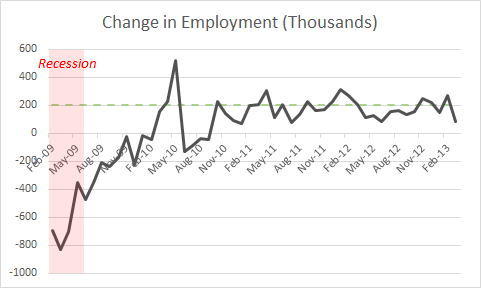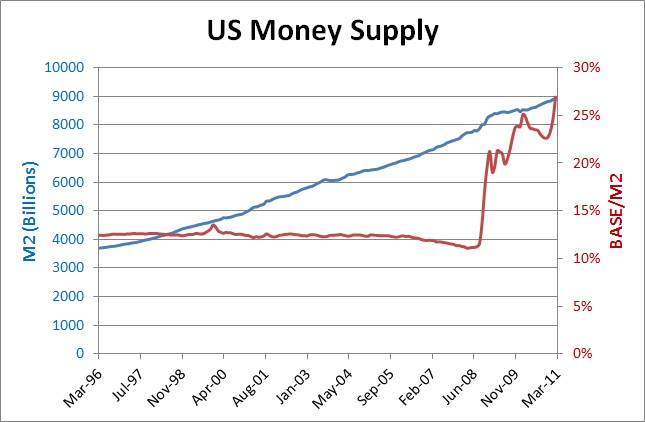My favorite Daily Beaster, Megan McCardle, recently posted some pretty interesting observations on the tax code:
Anyway, I’ve got a better idea: let’s get rid of the corporate income tax entirely.
No, really, hear me out. The corporate income tax is the source of almost all the tax-dodging activity in America. This activity is extremely expensive, and millions of valuable man-hours are diverted into it. As well as into writing semi-numerate op-eds about the corporate income tax.
Why not get rid of the tax, and the tax avoidance, by radically simplifying the tax code? Eliminate the corporate income tax–and then also eliminate the special rates for capital gains and dividends. Tax all income once, progressively, when it’s realized by a person.
This is a very attractive idea. Any plan that drastically simplifies the tax code, saves untold billions in compliance costs, eliminates opportunities for tax evasion, and removes the motivation for employing half of K street, is worthy of serious consideration (even if the politics suck and the chances on enactment are approximately zero).
In particular, it’s interesting (to me anyway) to speculate on how enacting this reform might change individual and corporate behavior:
- It would create a fairly powerful incentive for companies to retain earnings since this would allow shareholders to defer, though not ultimately avoid, taxation. Dividends would probably become far less common.
- Capital structure of firms would likely become more conservative (i.e. leverage would decrease) for two reasons:
- Firms that retain their earnings have less need to borrow
- Elimination of corporate taxes also eliminates the tax advantages of debt financing (corporate interest payments are tax deductible, which ceases to matter if the tax rate is zero)
- Reductions in corporate dividends and issuance of corporate debt might have some interesting impacts on investment behavior. Financial instruments like annuities may become more popular as investors look for ways to convert their portfolios into reliable income streams.
- Personal loans with stock as collateral are likely to become much more popular, and may attract the attention of the IRS.
- There would be a pretty dramatic adjustment period as firms scale back or abandon activities that were made economic by corporate tax breaks (bye-bye wind energy).
- Since the denizens of K Street aren’t going to go quietly, and politicians will remain found of doling out goodies to their favorite industries, we may see an expansion of subsidies, regulatory boondoggles, and unfunded mandates (welcome back wind energy).
- The adjustment period may be very painful, but the long term payoff would be huge. Eliminating the misallocation of resources for tax reasons, and the massive waste of time and energy associated with managing corporate tax issues, would probably add a few tenths of a percent to our long term growth rate. Over time this would make the country much richer.
- There is likely to be an expansion of audit activity at publically traded firms. The loss of the tax cross check would likely cause greater scrutiny of corporate earnings, and there would be a lot of tax and finance people looking for new ways to justify their salaries.
- There is likely to be a big movement of liquid assets that currently reside overseas back to Wall Street. For tax reasons multinationals have a ton of cash in overseas accounts. With no corporate tax there’s no reason not to bring that money home. This would help Wall Street, but hammer other financial centers.
- On the down side, a great deal of tax driven financial engineering will suddenly become unnecessary. Combine this with reduced issuance of corporate debt and Wall Street firms would probably take big hit (oh dear, so sad).
- The impact on M&A activity is not totally easy to foresee. On one hand firms are likely to accumulate cash and want to spend it on something. On the other, any transaction creates a major taxable event for shareholders in the acquired firm. On balance, I suspect firms may develop a bias for organic growth over acquisitions.
- Cheating on your personal taxes would become much harder. Eliminating corporate taxes would free up a ton of resources and greatly enhance incentives for the IRS to go after individual “evil-doers”. Anybody trying to run their personal expenses through a corporation would get crucified.
- Tax collections are likely to be disappointing in the first few years as people take advantage of the opportunity to postpone taxes through opting for capital appreciation over income. Tax revenue is likely to be higher than expected in the out years. Eventually people want to spend, so they’ll start cashing out and paying regular tax rates on their capital gains. Combined with the aforementioned higher growth rate this would significantly improve the long term fiscal outlook.
- If the switch happened tomorrow this would amount to a nice little bout of Keynesian stimulus, but not the kind of which Mr Krugman would approve.
- If you think the politics of personal income taxes are brutal now, just wait until they become the vehicle for collecting taxes on all income.
- Whatever business K Street loses from corporate clients is liable to be made up by new business lobbying congress on the individual tax code.
- The change would have all kinds of international consequences:
- Tax havens would likely lose a lot of corporate business, but see an increase in individual business. The incentive for US taxpayers to push the envelope in order to minimize personal income taxes would increase dramatically.
- In a major turnaround, the US may become a tax haven for foreign multi-nationals.
- Since tax competition is not exactly popular in some major European capitals, a trade war with the EU wouldn’t be out of the question.
- Alternatively, the huge competitive advantage handed to US firms may force the same policy on foreign governments, which would set off a cascade of unpredictable consequences. For example, the part of the Irish economy that didn’t implode (European operations hub for US multi-nationals) exists largely because of Ireland’s favorable corporate tax rate. If corporate tax rates went to zero everywhere it could be farewell to the remaining remnants of the Celtic Tiger, and welcome back to the basket case exporter of music, whiskey and people.
Tragically, we are unlikely to find out if any of the above speculations are remotely close to the mark. No matter how sound the economic arguments, there is no elected official, living or yet to be born, who is going to cast a vote for a zero tax rate on corporations. The attack ads practically write themselves.


